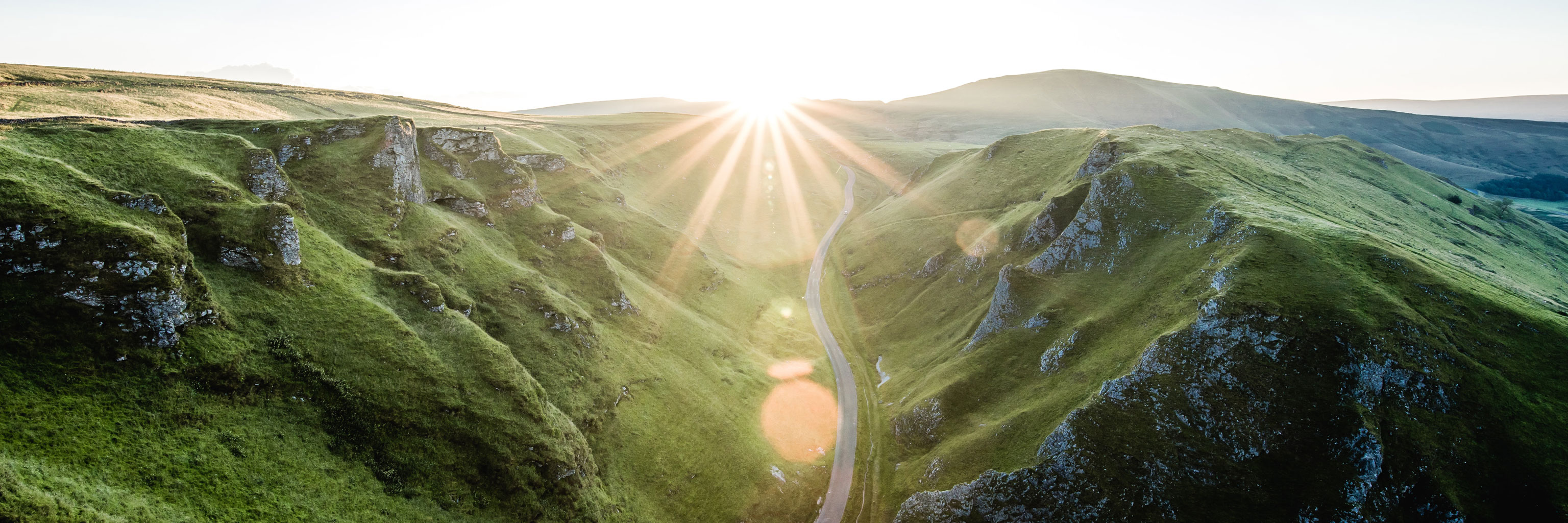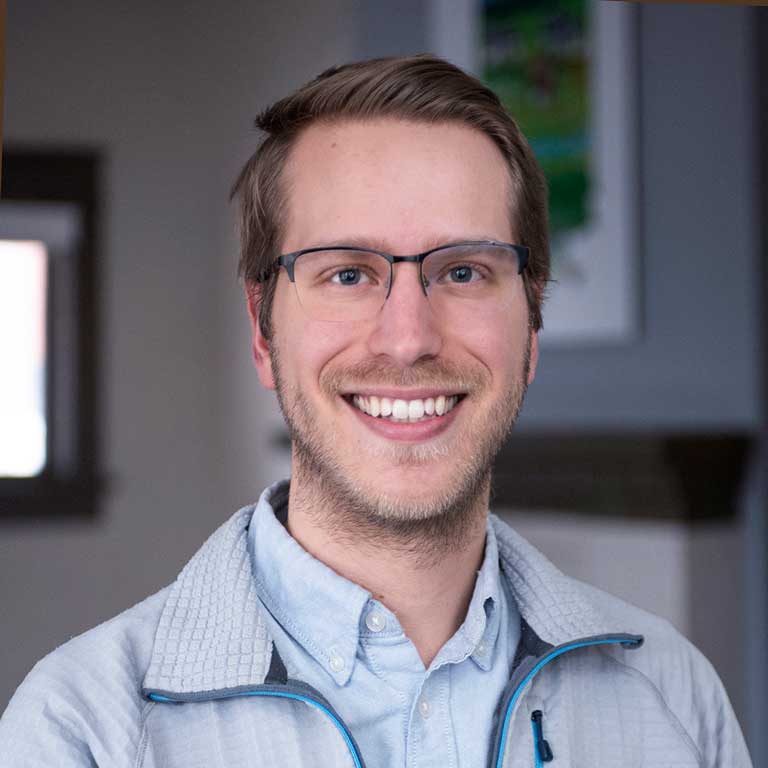Dr. Matthew Houser and Dr. Jen Lau’s section of BIOL-L 104 Introductory Biology Lectures is centered on offering an interdisciplinary perspective on environmental issues through a systems-thinking approach. Each environmental problem will be addressed both through sociological and ecological lenses. The course’s main focus is on project-based, community-based learning.
An interview with Dr. Houser, Midwestern/Indiana Community Studies Fellow with the Environmental Resilience Institute and adjunct assistant research scientist in the Department of Sociology, is below.
Why is it important for students to take this course?
Dr. Houser: We recognize—as well as scientists and other experts around the world increasingly recognize—the need to address environmental issues through a coupled systems or a socio-ecological systems approach.
In other words, there's human dimensions of these, there's natural dimensions of these, and there's the places where the humans and nature collide. We need to understand those various dimensions if we want to come to effective solutions that help avoid ecological and social crises that are looming but can be addressed, or we’re hopeful they can be addressed. Recognizing how these systems and dimensions collide is necessary if we want to make a difference.
We're hoping to give an introduction to that capacity to understand the layers and in effect give students the capacity to be change makers and be part of the solution.
A systems thinking approach is not something that you often get at a university, especially at the undergraduate level, because you often are taught in a particular discipline and a particular way of thinking. Beyond just being able to think about solutions, this is something that is a very marketable skill after you graduate. The ability to synthesize and to become a systems thinker is one of the most sought-after skills.
What knowledge and skills do you hope students will gain by taking this course?
Dr. Houser: Because of my sociology background, I hope that students get a thorough understanding of the things that shape human decision making around environmental problems. It's learning not only about what contributes to inaction and the status quo, but also what we can do about it.
I want students to come out of this with the ability to communicate, so a priority of the course is gaining some practical knowledge in terms of how to encourage engagement and behavior. We're going to have group discussions and dialogues as well as some component that's focused on writing and articulating yourself—not necessarily an academic audience, but convincing the public and policymakers. It's about giving students the language around these topics and the conceptual frameworks, so that they can encourage people to recognize the feedbacks of how the environment impacts us and how we impact our environment, both abstracted and micro.
What, to you, is the most interesting aspect of this course?
Dr. Houser: A major goal of this course is for students to get some hands-on, real-world experience in applying some of the conceptual frameworks. I don’t want it that we're just talking about this in class, so I am very excited about the opportunities that students will be able to work with people: key stakeholders around the state and our local community who are dealing with some of the very issues we're talking about in the research and literature in class. They are the people who are facing this—whether it be farmers or foresters—and are the ones dealing with it day-in and day-out, looking for solutions—whether it be their management practices, policy, a better understanding of how soil interacts with trees.
You're going to be able to say, “I did this in class,” whenever you go out and do job interviews. We're going to give them an opportunity to work with real problems out in the community and come up with solutions.
Also, one of the exciting and cool things about interdisciplinary work and this systems thinking is that it's hard. It's really hard, but it leads you to question the things that you've come to understand or feel are true about your expertise, your knowledge area, your major. During this process, you think more about the stuff that you already feel comfortable about, so it makes you better at that work in and of itself.
What, if anything, do you get to learn from teaching this course?
Dr. Houser: I expect the students are going to push me to think a lot about my own work, as well as how we can be better at working together. These students are going to be coming in with fresh eyes, fresh questions, fresh perspectives.
I'm also excited because this generation, this cohort of students coming up, is incredibly committed to making a difference when it comes to environmental problems and in a way that just wasn't there when I went to college—and certainly not for people that are older than I am.
Every time I get to interact with students around these topics, I get inspired. I get excited because I would say my kids are going to live a better life because these students are so committed, so intelligent.
They're going to make a difference, and I feel better about the world. If I can contribute a small component towards their success, then that's the most rewarding thing I can do during a day.
Are there any assignments that you're particularly excited about?
Dr. Houser: Project-based and community-based learning. We're still working out the particulars of that because of Covid-19, but we're hopeful that we'll be able to get out and do a bit more. After getting the conceptual foundation and practicing it in the introduction of the course, the students will get to experience it first-hand and see their energy applied to finding solutions or helping people come to solutions.
We're going to have a variety of options and a variety of ideas that students can work with. [Dr. Lau] and I do a lot of work with agriculture and farmers, so that's going to be a component of it, but we're also going to reach out and work with other people and problems like for example, dealing with migratory birds. We're hoping to have some real, hands-on engagement work with many of the organizations that deal with these issues around Bloomington and around the state.
What type of students would you encourage to take this course?
Dr. Houser: I would say anyone that is interested in learning more about or interested in doing more on our contemporary environmental problems. We're going to have a general focus on environmental change, and that certainly includes climate change, but it also includes other emerging changing circumstances.
We're going to be aware that this might be your first exposure to some of these topics, so it's not going to be hitting the ground sprinting. We'll get there. We'll build up the knowledge.
If you've already taken several courses and already passionate, we can also meet those students’ needs.
To my knowledge, there's not another course like this on campus. This is amazingly unique. If you’re diehard and this is what you want to commit your life to, we're going to contribute something that's fundamentally different to you. That's the exciting part about collaborative interdisciplinary work: We find ways that our interests and expertise can fit together.
It's in the Biology department, but you don't need to have a strong background in biology?
Dr. Houser: Not at all. I don't have a strong background in biology. Being willing to wade into your ignorance with just enough knowledge so you can tread water is what we're going to help students achieve in this course.
Biology is a component of this and the course is in biology department, but we intentionally put it in a specific category. This is open to non-biology students and open to interdisciplinary majors because part of interdisciplinary work and doing this and saying, “I don't know. I'm not, and I'm never going to know as much about this as a biologist (or somebody who is particularly trained in a discipline). I just need to know enough about what they do, so that I can figure out what questions to ask and how we might actually fit together.” In fact, Jen and I are going to learn a lot about one another's literature during the process of this course, so we will learn some depth ourselves as well.
View ths course
View Themester courses




 The College of Arts
The College of Arts